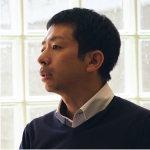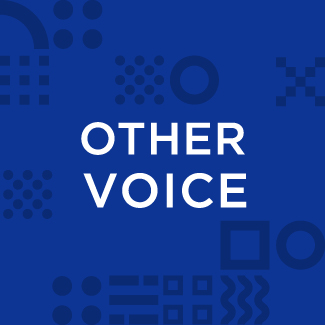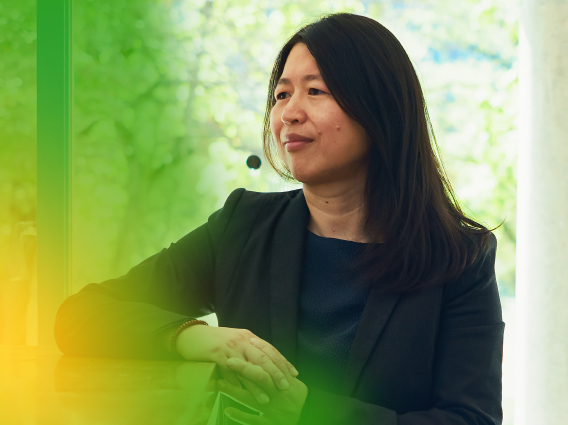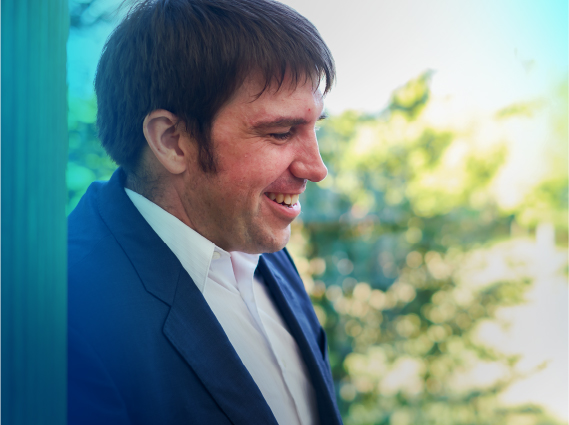A bridge that connects citizens and public administration
I study a new subfield of public administration called “Behavioral Public Administration.” In particular, I am exploring how citizens view government and their cognitive biases in policy and service evaluation. Conventional research of public administration has tended toward the aspects of how central bureaucrats engage with politicians to design and implement policies. On the other hand, public services, including roads, parks, water supply, and healthcare and welfare, aim to support the daily lives of citizens. If we focus narrowly on the policy decision-making mechanisms in the inner circles of government, it is unlikely to improve the quality of these services. It is thus essential that citizens participate in policy decision-making and the implementation of those services. However, according to the World Values Survey, which has been conducted worldwide since 1981, Japanese citizens’ trust in civil service is one of the lowest among OECD countries, higher only than Greece, the Czech Republic, and Mexico. If citizens’ interests in and knowledge of public administration remain low and public services are implemented without citizens’ engagement, it will be a great loss for the entire country. Given more than eight years of professional experiences in the US, Uganda, and Indonesia, I never think that the quality of Japanese public services is inferior to other countries. I wish to offer more evidence on citizens’ response mechanisms to the quality of government performance by conducting social experiments. I believe that deeper understanding of citizens’ cognitive biases in policy and service evaluation will make a contribution to building more effective policy making along with citizens.

Road to researchers with making efforts to pave the way
I was very late in deciding to become a researcher, obtaining my PhD in the United States when I was 38 years old. So I could go abroad to study for my master’s degree at an American graduate school of public affairs, I resigned from a central government agency at the age of 30, and worked as a development consultant in Indonesia for a year to save money. That time in Indonesia was the first time I had ever lived overseas. At 32 years of age, I enrolled in the master’s program of the Maxwell School of Citizenship and Public Affairs at Syracuse University, which has been described as the birthplace of the study of modern public administration. I later aimed to enroll in the Maxwell School’s doctorate program, but I was unable to overcome my lack of English language ability and statistics, my worst subject, so I was unable to advance into the program. Amidst my disappointment, I searched for work after obtaining my master’s degree, and found a fixed-term position at the Japanese Embassy in Uganda. While working on infrastructure development and other areas in Africa, I continued to study English and statistics. With my two-year contract nearing an end, I managed to be accepted into the Public Administration (PhD) course of Rutgers University, with a scholarship. By that time, I was already 35 years old. When I first aimed to be a researcher, I was concerned about Japan’s excessive fiscal deficit and I was galvanized to propose efficient public budget management, but by the time I started my PhD studies, I had completely forgotten about those feelings. This was because I was well aware that, even if I was able to obtain my PhD without incident, without a conspicuous body of published research papers under my belt, I would not be able to find employment in a university that offered a proper environment for research. It was less a case of studying from my own interest than sinking my teeth into the doctoral program classes desperately just to survive. I was eager to choose a fashionable topic and accumulate publications as fast as possible, but after I had the very good fortune to have Professor Frank J. Thompson, who is a nationally renowned scholar in the United States, my attitude to my research changed greatly. Professor Thompson advised me that it would take a long time, several years in fact, to be published in a highly-recognized academic journal and that it was certainly not an easy thing, so as far as possible, I would be better off choosing a research topic that I could enjoy. Ultimately, taking into consideration both my own past professional experience in public administration and the specialties of the Rutgers faculty, I landed on the research topic of citizens’ response mechanisms to public administration and policy. Under the warm, but strict guidance of my supervising professor, I was able to publish a single-authored paper in the leading public administration journal, Journal of Public Administration Research and Theory (JPART), the first Japanese to do so. I feel that I was able to achieve such an undreamed-of result because, cognizant of my own lack of talent, I thought about the balance between what I wanted to do and what I was able to do, and cooperated well with the people around me. Also, precisely because of that lack of talent, I learned the importance of continuing to show a willingness to work hard, so that those who were more able than me would want to cooperate with me.
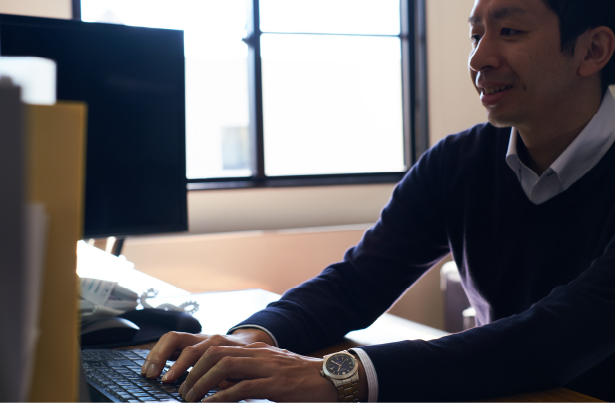
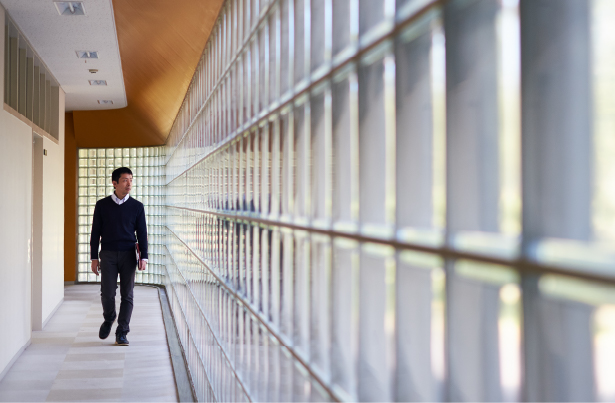
Benefits of gathering people from different countries
My academic record was recognized and I was able to gain employment as an assistant professor at the International University of Japan in 2018. I received offers from other universities in Japan, but for a number of reasons, I decided to work at IUJ. Those reasons included the fact that I could conduct lectures in English, after struggling so much to acquire that language in my 30s. Another factor was the fact that the students I would be teaching would not be undergraduates, but current public servants from a variety of countries. There was also the fact that close to 80% of the teaching faculty were foreign nationals, who were all working hard toward their goal of being published in international academic journals. Having taught lectures in public administration for about two years so far, it has been a fresh surprise to learn that, even though public servants from different countries have gathered together and are debating public administration issues, they are discovering, more than their differences, the many things that they have in common. Also, because all students live in dormitories and study together for two years, there is a sense of unity that I have never felt at any other graduate schools. This can be felt most vividly at the graduation ceremony. It is very moving to see the students, who will all be returning to their own country after the ceremony, sharing their sense of achievement while simultaneously feeling sad to say goodbye to each other. I have attended two of these graduation ceremonies to date, and they have given me a strong sense of my responsibility as a lecturer.

A pleasure of facing a changing society
Unlike medical research that aims to save human life, it is not easy to measure the contributions of each social science research to society. It is my belief that the question of what kind of research will be of benefit to society and create a bright future is not something to be decided alone. As I mentioned above, I am interested in understanding one aspect of human society by elucidating the mechanisms of how citizens view public administration and policy. If, ultimately, such research is recognized as having contributed to society, that would certainly make me happy, but if we are only worried about what society thinks of us, something we cannot predict, we may find it difficult to maintain the motivation to keep writing papers. Also, to understand the constantly changing citizen-government relationships, it is essential that we continue to update our knowledge, including that of rapidly advancing technology, and pursue our research with flexibility. To anyone who aims to become a researcher in the future, instead of adhering to specific claims or perspectives, I hope that you will discover how interesting it is to study modern human society, which is changing at an unprecedented rate, and that you will work hard to produce internationally recognized researches from Japan.
FACULTY EXPERTS
Shugo Shinohara Associate Professor
(Public Management and Policy Analysis)
[Courses]Public Administration,Research Methodology, Capital Budgeting and Debt Management
[Research Areas]Public Administration
[Research Keywords]Local Governance, Behavioral Public Administration, History of Public Administration, Gender
